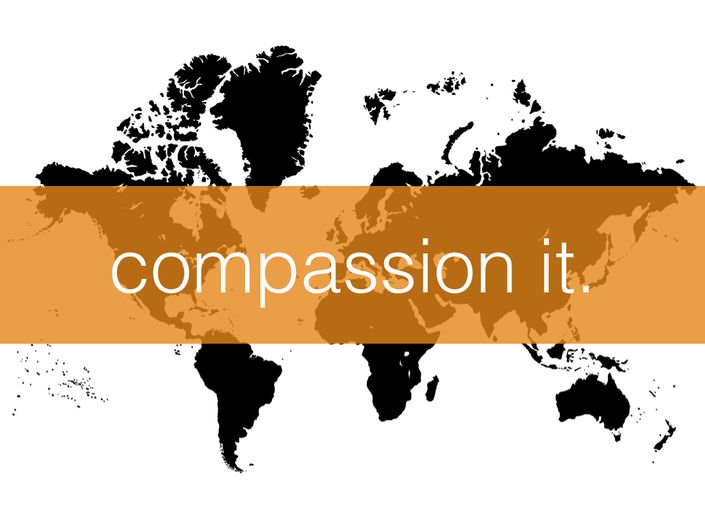
Compassion in the Classroom
How to decrease burnout and increase happiness through embodying compassion & mindfulness
Overworked? Experiencing burnout? Feeling stressed? As an educator, you are not alone.
Mindfulness and compassion may be your ticket to a fulfilled, grounded, joyful life (and classroom). If you infuse compassion and mindfulness into YOUR day-to-day, your students will learn from your actions.
Mindfulness and compassion are hot topics these days. You might have seen stories about professional sports teams, Fortune 500 companies, and healthcare organizations implementing these practices to increase performance and enhance overall well-being. Have you wondered why?
Research indicates that mindfulness and compassion help us increase happiness, decrease depression, and feel more connected. Imagine what may happen in your classroom if you can cultivate these skills.
This class is designed to help you easily infuse mindfulness and compassion into your life. During this experiential and information-packed workshop, Sara shares information about the benefits of mindfulness and compassion, and she'll guide you through basic exercises that you can take with you into your daily life (which will impact your classroom).
*To clarify - This course will NOT teach you how to introduce compassion and mindfulness to your students. It WILL help you implement mindfulness and compassion into YOUR life.
To start, Sara shares the definition of mindfulness and explains how the brain's default mode keeps our minds "full". She cites recent research that indicates physical and psychological benefits of mindfulness and meditation. Sara then guides you through a brief breath-focused meditation.
To introduce compassion, Sara connects you to the feeling of compassion, and then she defines it. She highlights physical and psychological benefits of compassion and shares a study that illustrates the benefits of compassion. Sara closes the session by leading you through a brief lovingkindness meditation, and she invites you to reflect on your experience.
By the close of the lesson, you should be able to accomplish the following:
1. Define mindfulness
2. Explain benefits of meditation
3. Cite one scientific study indicating benefits of mindfulness
4. Differentiate compassion and empathy
5. Understand why compassion is vital in today's world
6. Cite one scientific study indicating benefits of compassion
Your Instructor

Sara Schairer is a certified teacher of Stanford University's Compassion Cultivation Training (CCT) course and has taught CCT at the UCSD Center for Mindfulness, Kaiser Permanente and the Naval Medical Center – San Diego. She led compassion trainings in Africa sponsored by the Botswana Ministries of Health and Education and the Botho Movement.
Sara is the founder and executive director of COMPASSION IT, a nonprofit organization and global social movement whose mission is to inspire daily compassionate actions and attitudes. She created the one-of-a-kind reversible COMPASSION IT wristband that is now prompting compassionate actions on six continents, 50+ countries and nearly all 50 states. Wristband sales fund compassion education programs for youth, teens and adults.
As a public speaker, Sara shares the story of how COMPASSION IT began as an idea for a bumper sticker and quickly evolved into a global social movement. Sara encourages her audiences to “compassion it" in their daily lives, and she inspires them to pursue their great ideas. Sara is also a contributing author to the book “The Neuroscience of Learning and Development: Enhancing Creativity, Compassion, Critical Thinking and Peace in Higher Education."
Sara believes her purpose is to share the message of compassion with as many people as possible, which is why she and her COMPASSION IT colleagues are now offering classes online. In order to make compassion accessible to all, Sara uses a casual, easy-to-understand teaching style. Her experiential virtual classroom allows students to participate in exercises that illustrate the power of compassion.

